In the process of gradual commercialization of fan culture, how does the identity of fans change, and how much profits brought by fan economy attract capital?
In terms of fan culture, the “fan culture” is a particular cultural phenomenon that emerged from the development of mass media technology and popular culture. Stars be noticed by the public through the media, and then they have followers, that is the first community of fans.
In essence, fans are a group of people who have love or even a craze for a particular star or area. The number of fans can also be used as a measure of a star’s public popularity. Fans are a special product of the entertainment era, and the emotional consumption of fans enhances the economic benefits.
Fan economy is an emerging business model in which fans mobilise emotional capital in a virtual environment created by the mass media, resulting in consumption behaviour. The traditional business process is vendor-mediator-distributor-user. As can be seen, the steps required for this model are complex and the principal is high. In contrast, consumer behaviour with emotion as the main factor reduces the intermediary channels and allows the emotional input to be converted into a product instantly.
The development of the internet has provided a convenient channel for the fan economy to grow. People rely on social platforms to exchange information in their daily lives, and celebrities have a huge number of followers, which can have a huge impact by simply updating their social platform content. The influence on fans is mainly reflected in their emotions, which can directly guide their consumption.
“Emotions are the main factor that can generate a consensus among fans, and if you can get strong fan approval, you can turn it into economic benefits. Essentially, the fan economy is a virtual economy that relies on emotional capital, which does not require much investment. It is one of the easiest to mobilise.” Yao Wang says they usually include this factor of endorser’s proposals.
In recent years, with the increasing number of idol talent shows and various star-making programmes in China, young idols have been popping up in the public. The number of fans has been expanding, thus ushering in an explosion of the fan economy.
I have conducted a questionnaire survey on the economic benefits that the fan economy brings to the market, with a total of 589 valid samples collected, and the following are the details of the report:
Most people have their favourite celebrities and have paid for the celebrity endorsers.
More than half of the respondents have their favourite celebrities and have made purchases for their favourite celebrities.
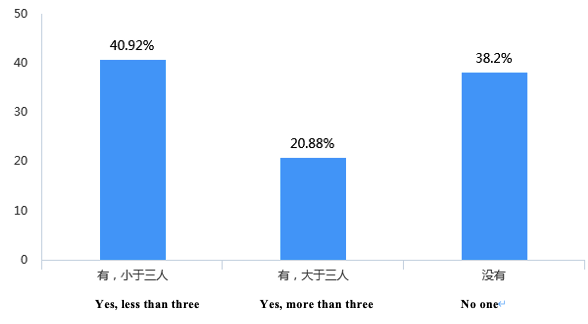
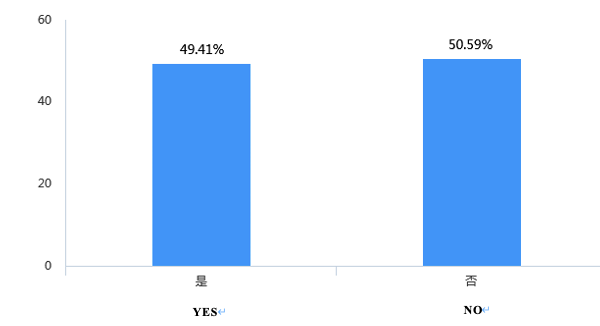
Fans have strong purchasing power
Most people spend more than $5,000 a year for celebrity endorsements. 6.62% of respondents spending more than $10,000 for celebrity endorsements, with the highest being more than $50,000.
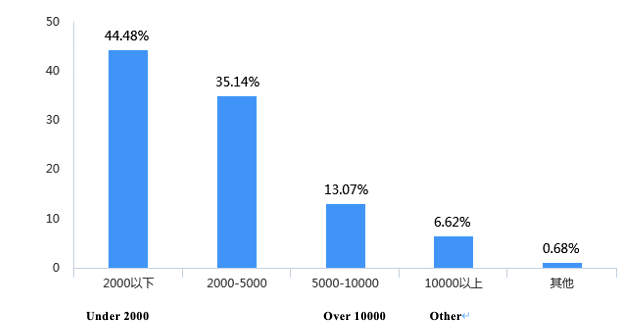
Beauty endorsements are the main type of consumption
In the types of celebrity endorsement spending, most people choose to buy beauty endorsements, accounting for about one-half.
Then is the food and lifestyle products. Nearly 40% of these respondents buy things they don’t need simply for the sales of celebrity endorsed products.
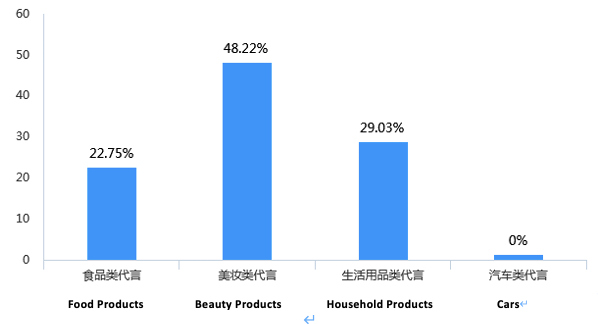
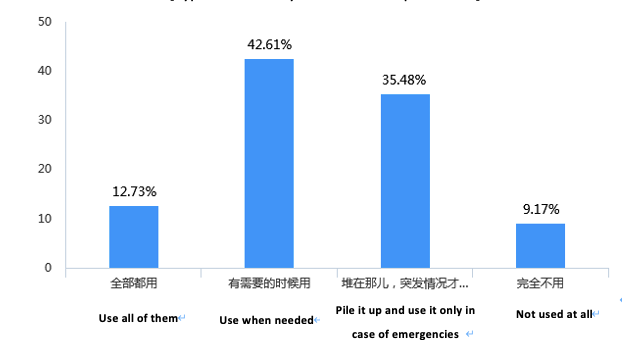
Most people don’t regret spending money because they support their favourite celebrities The majority of those surveyed said they do not regret buying products endorsed by their favourite celebrities. Only about 1% said they regretted buying a product endorsed.
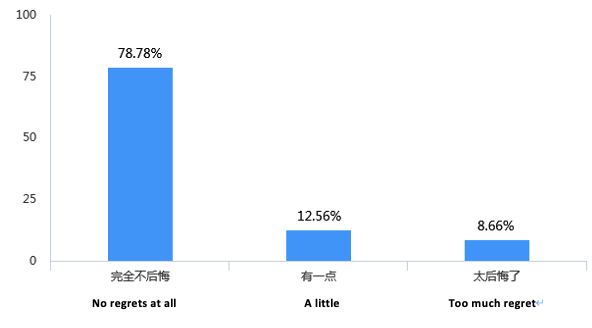
Reasonable consumption dominates
More than half of people occasionally buy products endorsed by celebrities, but the products they buy are they need, and about 10% said they must buy all of products endorsed by celebrities.
Nearly 80% of respondents said they would not buy endorsements to help a celebrity’s sales figures reach their targets.
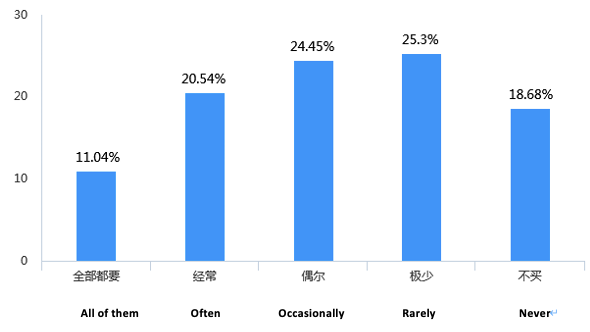
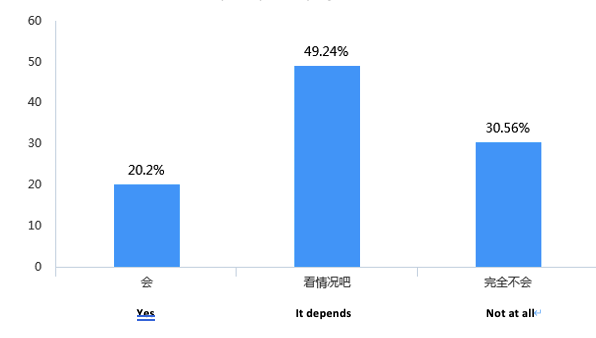
High celebrity influence
Among similar products, more than 70% of respondents would give preference to products endorsed by their favourite celebrities. And they would not continue to buy a product after it has changed endorsers.
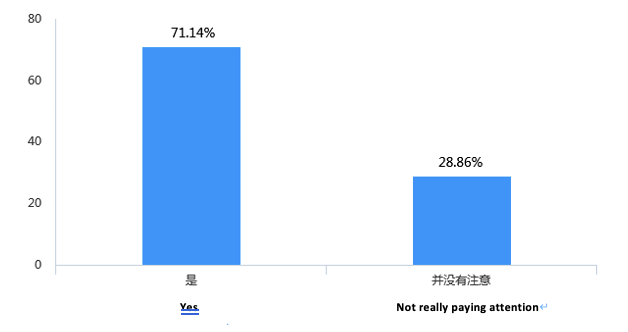
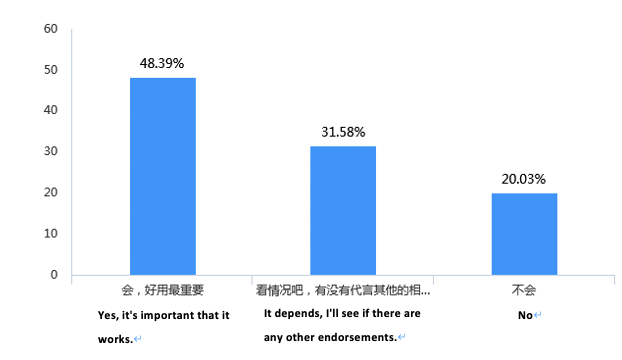
Nowadays, the fan community is so influential in the market that businesses usually look for celebrities to endorse their products. The celebrities bringing attention, users and sales to brand’s products and use their public influence to create advertising and the fan will pay for the celebrity effect.
The second manifestation of the fan economy is the transformation of fans into producers from consumers. They get the benefit for brands, video platforms and agencies.
“Fan support events are gradually become a delight for brand owners, advertising agencies and fan service platforms to reap customers, users, traffic and sales.” Yao Wang explains the value of fan support event for brands today.
“In the past few years, brands have asked us to maximise the benefits by bringing their products closer to the fan base and considering the back-up culture when making planning cases.”
There is a whole process within the fans for the support campaign. Xiaoxiao Bai explained about the whole process. “Our funding source is divided into two parts, one part is fan fundraising, this kind is mainly used for some bigger support event, such as celebrity’s birthday or some anniversary. The other part is the profit from selling photobooks and peripherals. Then, we contact with some design studios, event organisers and some business partners. We will prepare the material for the campaign and submit it to the celebrity studio for approval. “
“On the day of the launch, the star’s studio will buy some press releases to promote the campaign and we will also put up a poster on our Weibo account to summarise all the support activities. At the end of the campaign, we collate forum discussions, data feedback and submit it to the star’s studio.”
After looking at the work of the official fanclub, I think they are more like a small event planning studio than a fan community. The special thing is they have one client — their favourite stars.
“Birthday support event is one of the most profitable activities in the fan support culture. In 2016, OPPO (a telephone company) title sponsored TFBOYS(a famous star group)’ birthday party, customised TFBOYS’ birthday commemorative edition mobile phones, and produced relevant support items for fans of the birthday party, such as drop-in lights, posters, human-shaped stand-up signs, etc., while initiating fan-led participation in the Weibo banner birthday ad campaign. “

Brands have customised birthday parties for celebrities, shifting the role of stars in previous communications: from the traditional “passively cooperating with brand-focused communications” to “creating impact for brands with stars at the core”.
That is, event is planned around the celebrity to provide a communication platform for the brand. As the most concentrated and intuitive manifestation of the fan economy, birthday support activities expand the commercial value through the clustering effect and provide the conditions for brands to better communicate and spread the words with their endorsers.
“This is the first time that a brand has provided sponsor for a fan support campaign. In this process OPPO and the fans generate cooperation and the fans turn from being consumers into partners. While doing publicity for the star, they also do so for OPPO. This makes OPPO’s philosophy and values more popular and enlarges the market, creating a model where all three parties are satisfied with “brand + star + fan, in which OPPO and its fans interact and communicate with each other. ” a three-way carnival models. “
When the star-chasing industry chain first emerged, fans and the star’s agency struck a balance. But as capital discovered the huge profits, it joined in droves, leading to an imbalance in the market. Capital provided the fan community with money or other forms of awards (such as a product endorsed by the star or signature from the star.
In this process, the relationship between professional fans and fan communities transfer from the single into a form of cooperation, and has also transformed from a single consumer identity to a producer. The community such as fanclub gradually becoming a business platform connecting idols with capital.
In the fan economy, companies directly play an important role. Businesses and capital are constantly squeezing the consumption power and enthusiasm of celebrity’s fans for profit. The companies only use various digital methods to quantify the “loyalty” of their fans.
As Yao Wang says, data such as the sales data lists and customised celebrity gift boxes have become one of the factors they consider when planning their product sales. These companies provide a platform for the fan economy to develop its resources, while at the same time consuming the spirit of the fans.
In previous years, a relative balance also had been struck between fan communities and brokers, but with the massive involvement of capital, this balance has been disrupted. They tur fan communities into mere tools for harvesting fan money and causing the entire fanclub to lose its original orientation.
China is in the process of regulating this behaviour in these years and the initial results can be seen. Until now, this regulation continues, various types of celebrity lists and accounts of professional fans on social media have been cancelled. Celebrities are required to have only one official fanclub, and some accounts with a lot of followers that would be a bad influence on their fans have been shut down.
